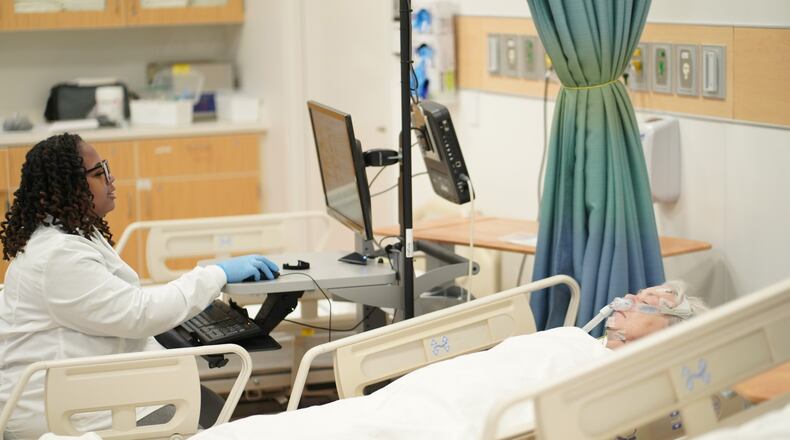The additions to the health sciences division include histotechnology and polysomnography technician certificate programs.
Histotechnology is a science centering on the microscopic detection of tissue abnormalities for disease diagnosis and the treatment of diseases, says the National Society for Histotechnology.
The histotechnology short-term certificate program will equip graduates with the skills needed for careers as specialized clinical laboratory professionals, Sinclair says. Histology technicians process patient tissue samples onto slides for pathologists ― doctors who specialize in bodily tissues and fluids ― to examine under microscopes for diagnosis or research purposes.
Graduates will gain both theoretical knowledge and technical expertise, which can be utilized in various career settings, including hospitals, clinics, research labs, education, administration and even sales.
The polysomnography technician certificate program prepares students to conduct sleep studies on individuals suspected of sleep disorders, Sinclair says.
Examples of job responsibilities for polysomnographic technologists include recording and analyzing related data, along with reporting their technical findings to physicians to aid in rendering a medical decision.
Career opportunities exist in sleep centers, hospitals, clinics, and doctor’s offices specializing in sleep medicine.
The U.S. Bureau of Labor Statistics projects a 5% growth in employment for clinical laboratory technologists and technicians by 2032, with an estimated 24,000 job openings annually.
The median annual wage for clinical laboratory technologists and technicians was $60,780 in May 2023, according to labor statistics.
“This empowers them to graduate with a degree or certificate that leads to a career with a family-sustaining wage and directly addresses the needs of employers in the Dayton region,” Sebor said.
The health care industry is one of the biggest employers in the area, with about 14,000 jobs at Kettering Health, according to the Ohio Department of Development, and more than 11,000 jobs at Premier Health.
“Sinclair’s mission is to find the need and endeavor to meet it, and these new programs exemplify that commitment,” Sebor said.
Nationally, health care added 55,000 jobs in July, similar to the average monthly gain of 63,000 over the prior 12 months, according to labor statistics. In July, employment rose in home health care services (+22,000), hospitals (+20,000), and nursing and residential care facilities (+9,000).
About the Author




